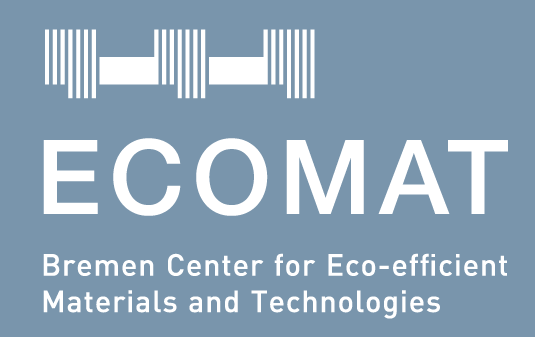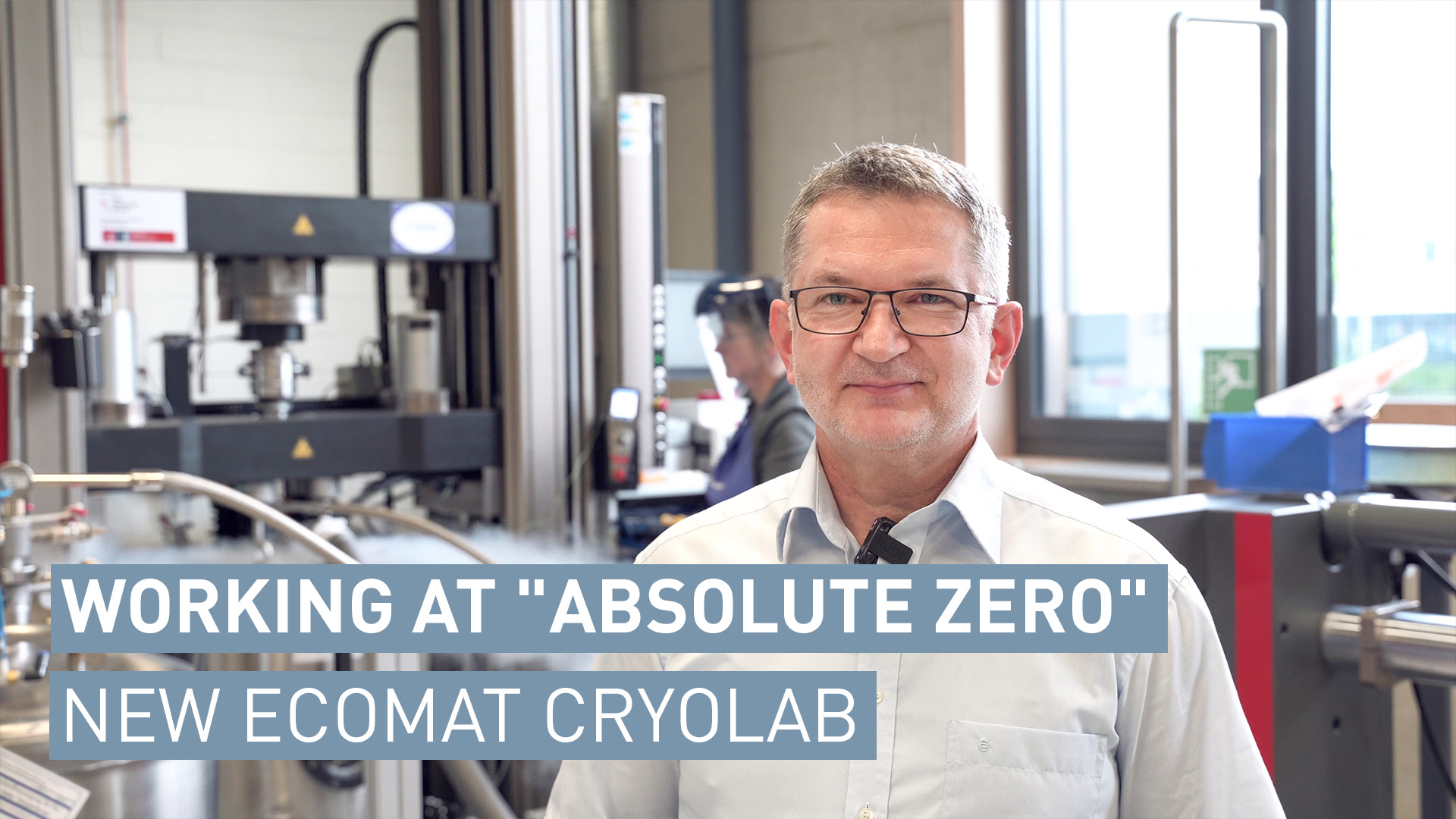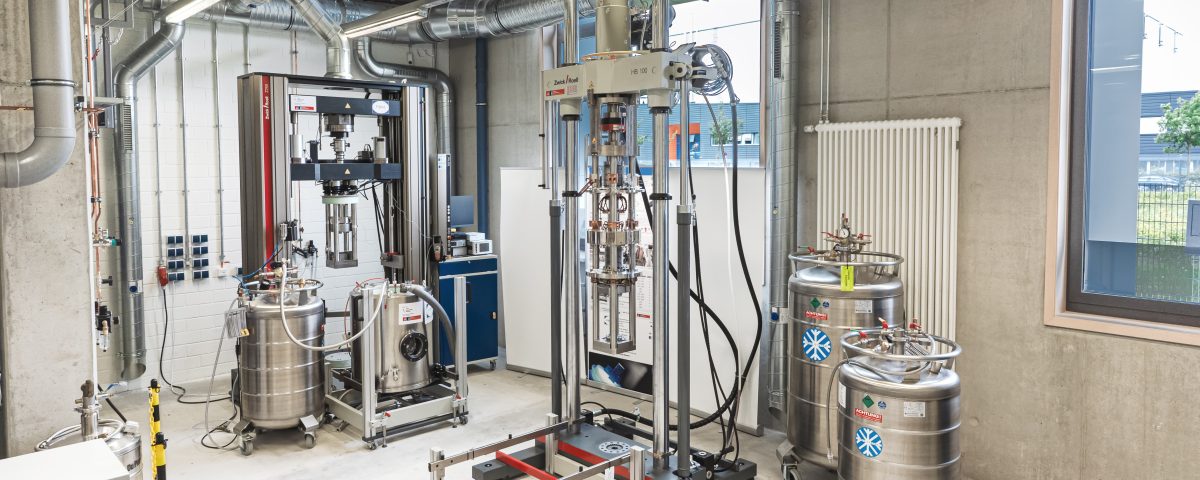
The new ECOMAT CRYOLAB: Working at "Absolute Zero"
The new CRYOLAB at the ECOMAT Center for Eco-efficient Materials and Technologies is a new facility for testing materials intended for use in aircraft construction and aerospace at extremely low ("cryogenic") temperatures. At the CRYOLAB, engineers and scientists are gaining new insights into material properties, for example, finding out how damage can be caused to metal and fibre composites and how that damage spreads. Their aim is to achieve a better understanding of existing materials and use their findings in creating innovative new substances.
If hydrogen is to be used to power the aircraft of the future, it must be stored cryogenically, in its liquid form, at temperatures of around -260 °C. Otherwise, the tanks would be far too big and heavy. Obviously, such extremely low temperatures need exceptional insulation. The way the tanks are constructed must also prevent micro-fissures caused by unavoidable fluctuations in temperature and changes in interior pressure depending on the flying height. Such microscopic cracks would allow hydrogen to escape from the tank and compromise its structural integrity.
This is an incredibly complex challenge which the currently available lightweight materials are not yet able to overcome. For this reason, materials specialists such as Dr. Ernö Németh from the Faserinstitut Bremen (the FIBER fibres research institute) have been called in to help. As Németh, the Laboratory Director, said, "The CRYOLAB in Bremen is making a decisive contribution to the development of hydrogen tanks for the aircraft of the future. In our new testing facilities, we can test materials at almost four degrees Kelvin, in other words, minus 269 degrees Celsius, and make a significant contribution to ensuring that hydrogen-powered flight is safe and efficient".
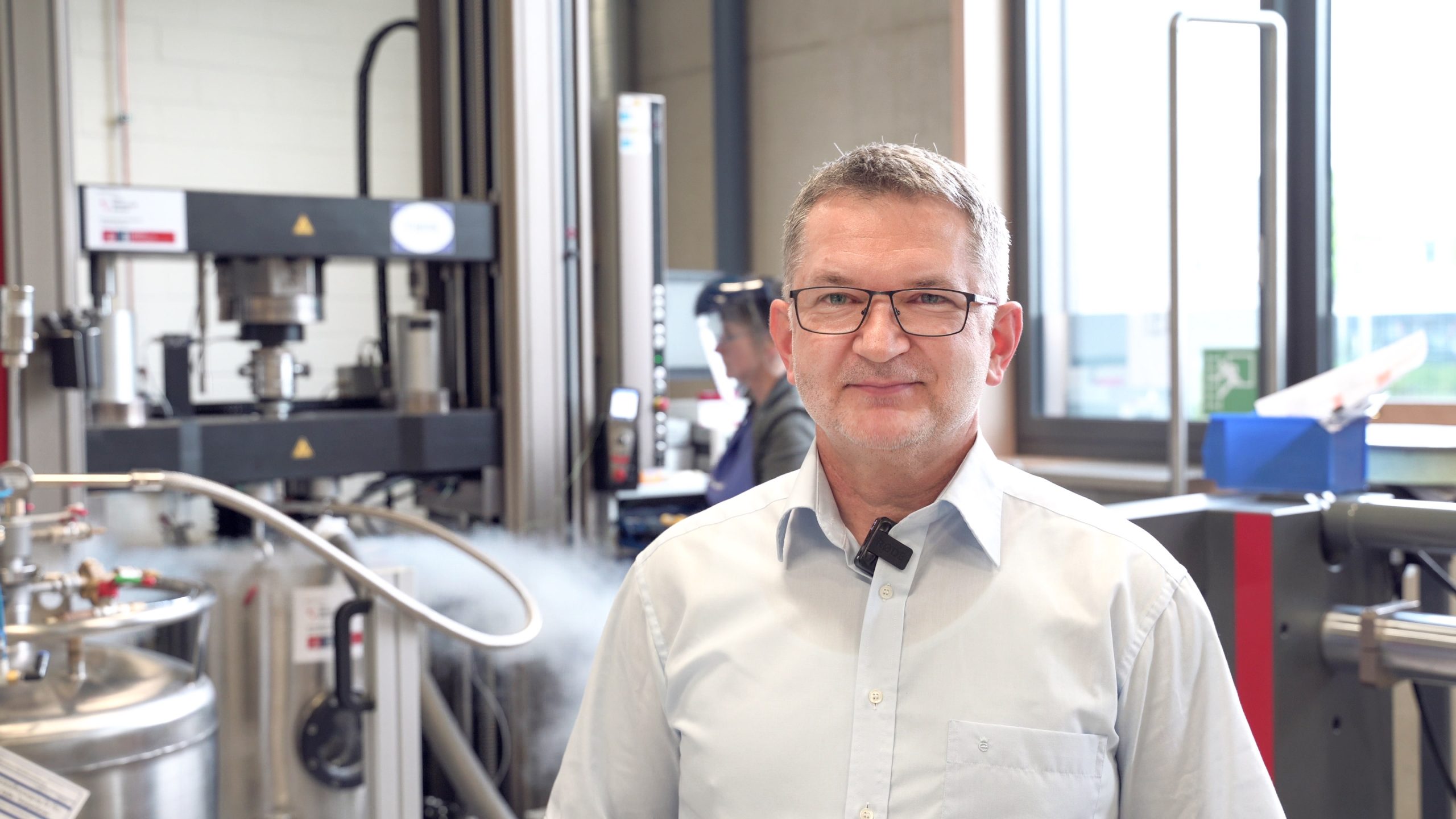
Dr. Ernö Sándor Németh, lab manager CRYOLAB at ECOMAT
The new CRYOLAB at the ECOMAT Center is a joint venture by AIRBUS and the FIBER Institute. It came into operation in Summer 2024. There, the materials experts from ECOMAT work closely together with specialists from Bremen's aerospace industry, who already use hydrogen as a fuel for their rockets.
The 60 m2 laboratory is home to a variety of measuring devices for metal and fibre composites. Liquid nitrogen and liquid helium are used to bring these materials down to cryogenic temperatures.
Equipment for measuring the coefficient of thermal expansion (CTE)
The extreme temperatures and temperature differences experienced by components when they come into contact with cryogenic liquid hydrogen in hydrogen tank systems cause the materials to shrink and expand. As a result, the component interiors are subjected to high levels of stress and strain and are at risk of cracking or deformation.
Carbon fibre-reinforced plastic (CFRP), which is frequently used in aircraft construction, is particularly vulnerable to this phenomenon because it is made up of two different materials with very different thermal expansion characteristics. The same is also true for glued or welded joints in aircraft.
Aircraft designers must be fully aware of these behaviours and bear them in mind, both when selecting and creating materials and when designing components. This is why the coefficient of thermal expansion (CTE) is such an important technical parameter for materials.
The new ECOMAT CRYOLAB uses equipment from the Bremen FIBER Institute to measure the CTE. Tempered material probes can measure the CTE accurately at temperatures ranging from -269°C to +200 °C.
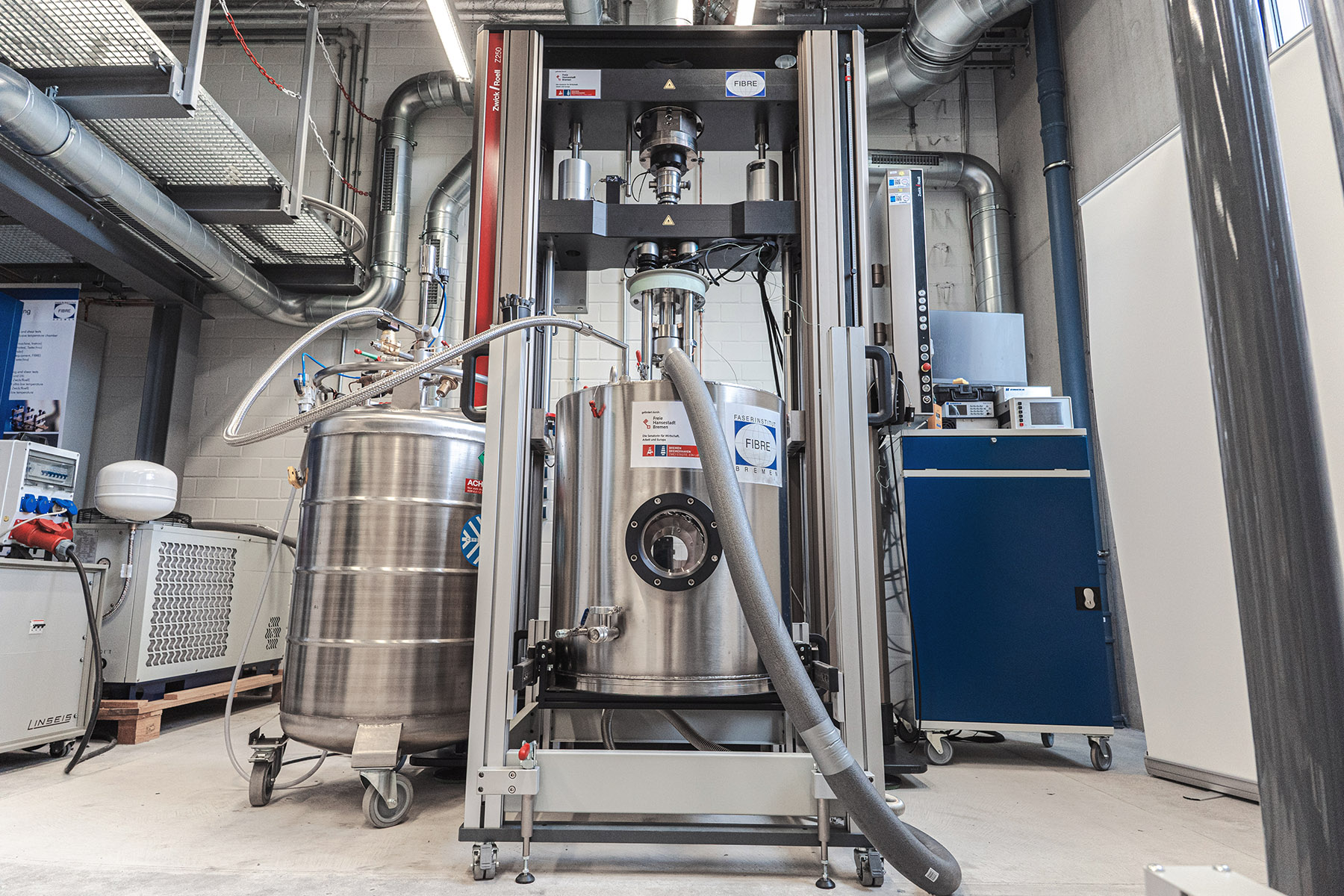
The static tensile testing machine
Static tensile testing machine in liquid nitrogen (LN2)
Another new piece of equipment at the ECOMAT is the cryogenic tension/compression machine. This measures how materials behave under extreme conditions, when they are subjected to tension, compression or bending/shearing forces. As Dr. Németh said, "This enables us to get a comprehensive understanding of their mechanical properties". This machine also defines the modulus of elasticity, which influences a material's stiffness, deformation limits and fracture strain.
The three-metre high machine in the CRYOLAB has a cryogenic chamber in which the test material is cooled to -196°C by liquid nitrogen. A cooling system maintains the test material at the required temperature throughout the entire measuring process and a data capture system records the relationship between the force applied to the test object and the resulting deformation.
Dynamic tensile testing machine in LN2 (from July 2024)
To identify the progressive damage to materials when they are subjected to cyclical, mechanical stress in an cryogenic environment, ("fatigue"), FIBER brought another dynamic tensile testing machine into operation in the CRYOLAB in Summer 2024. Testing using this apparatus is also performed in hydrogen at a temperature of -196 °C. Among the questions these tests aim to answer are how the generation and spread of fractures, such as those found in carbon fibre reinforced plastics, can be delayed, or ideally prevented by the use of improved or entirely new types of plastic. "Our goal is to increase material service life. We want to achieve this both by using improved carbon fibre textiles and also in the way that the individual carbon fibre layers in the material are laminated", explained Dr. Németh. This area of research is especially demanding because CFK is such a versatile material which can be combined in many different configurations, all of which require extensive testing.
Dynamic tensile testing machine in super-cooled helium with permeation testing (from September 2024)
Yet another dynamic tensile testing machine will come into operation in the CRYOLAB in September 2024. As this apparatus is equipped with a cryostat and cryocoolers for helium, it can be used to perform experiments at temperatures of down to -269 °C. Another special feature of this machine is that it has a measuring device that can measure the creeping leakage of helium through microscopic cracks in materials ("permeation"). These micro-fissures are the result of mechanical and thermal loads, which the tensile testing machine applies to the test object. This machine can therefore simulate the kinds of load and condition that occur during real flying conditions. The levels of helium permeation measured here can be used to extrapolate the impermeability of the test material to hydrogen.
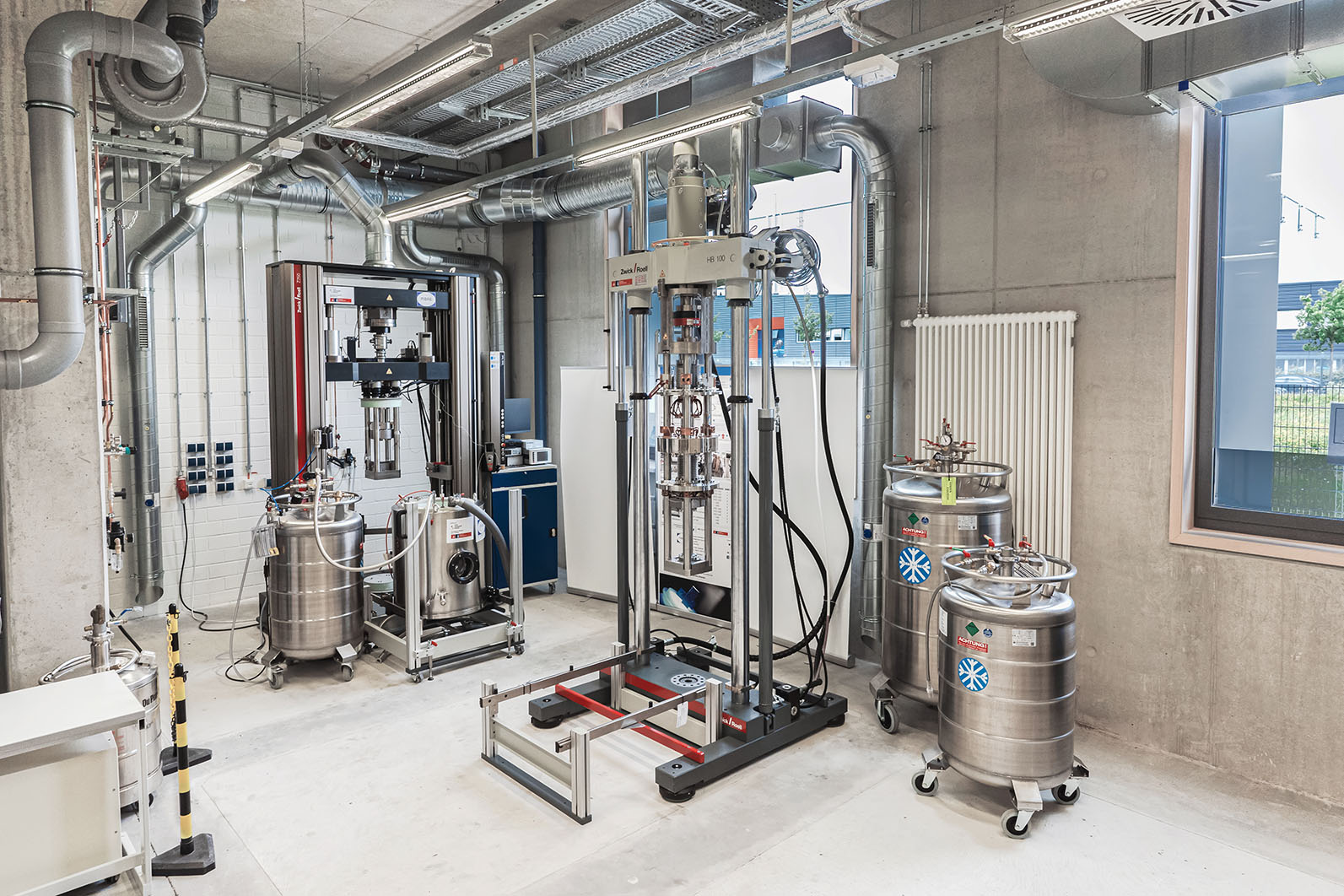
A range of measuring equipment allows the testing of metals and fiber composites
Working together on the future of aviation at ECOMAT
Among others, the new laboratory is working for the Airbus ZEROe Initiative whose stated aim is to bring the first hydrogen-powered aircraft into commercial operation in 2035. The laboratory is also open and ready to work on other research projects with other industrial partners. As Christoph Hoffmeister from FIBER also said, "ECOMAT's strength is its ability to integrate the specialist knowledge and resources of its partners and create a closely-knit and effective research network". "Bremen's short routes, our shared facility and the many different areas of expertise all help speed up developments enormously. And, in turn, our joint successes inspire our mutual working relationship. We have created a community here that works together with exceptional enthusiasm."
Research institutes such as FIBER not only bring their capacity and theoretical expertise to the ECOMAT community but also to the scientific environment of Bremen as a whole.
FIBER also runs its own test facilities at the University of Bremen's campus, where it also has access to the university's other facilities. Together with the German Aerospace Center (DLR), the Faserinstitut (FIBER) is currently planning to set up even more laboratories in Bremen, in which new materials can also be analysed after being placed in direct contact with cryogenic hydrogen. Due to the extreme flammability of hydrogen, tests of this kind cannot be performed in the ECOMAT building itself.
The ECOMAT CRYOLAB is a project supported by funding from the Federal State of Bremen and the BAB – the business development bank for Bremen and Bremerhaven. "Our Institute is extremely grateful for this funding. Without support from the Federal State of Bremen and the Senator for Economy and Seaports in Bremen, this investment in the future of CO2-free flight would simply not be possible" said Christoph Hoffmeister and Dr. Ernö Németh from FIBER, in agreement.
Older Articles:
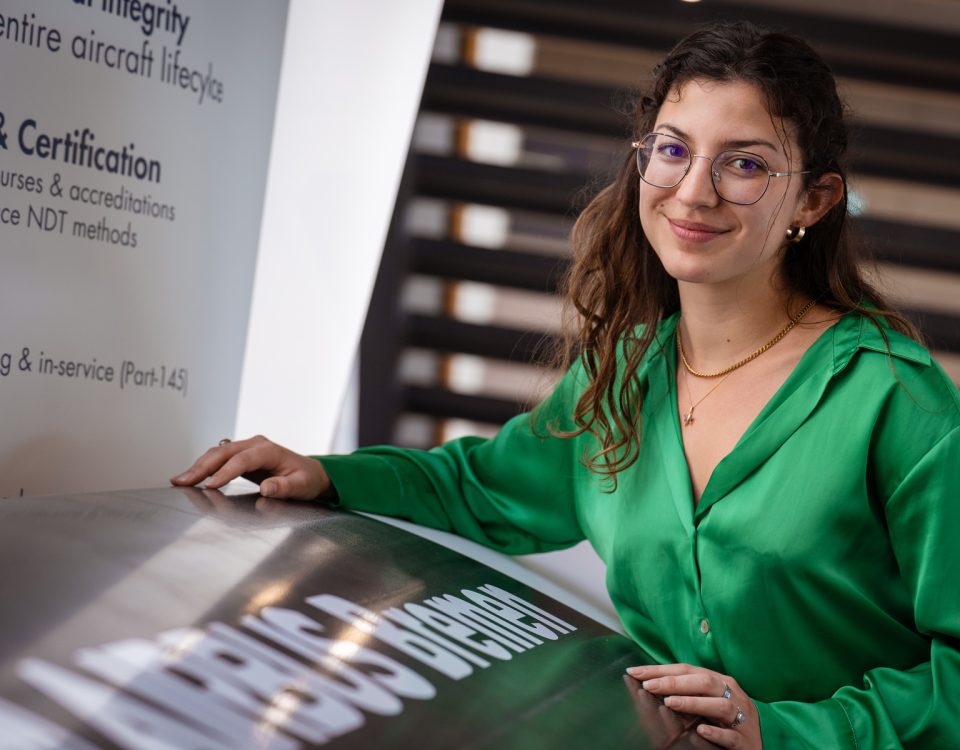
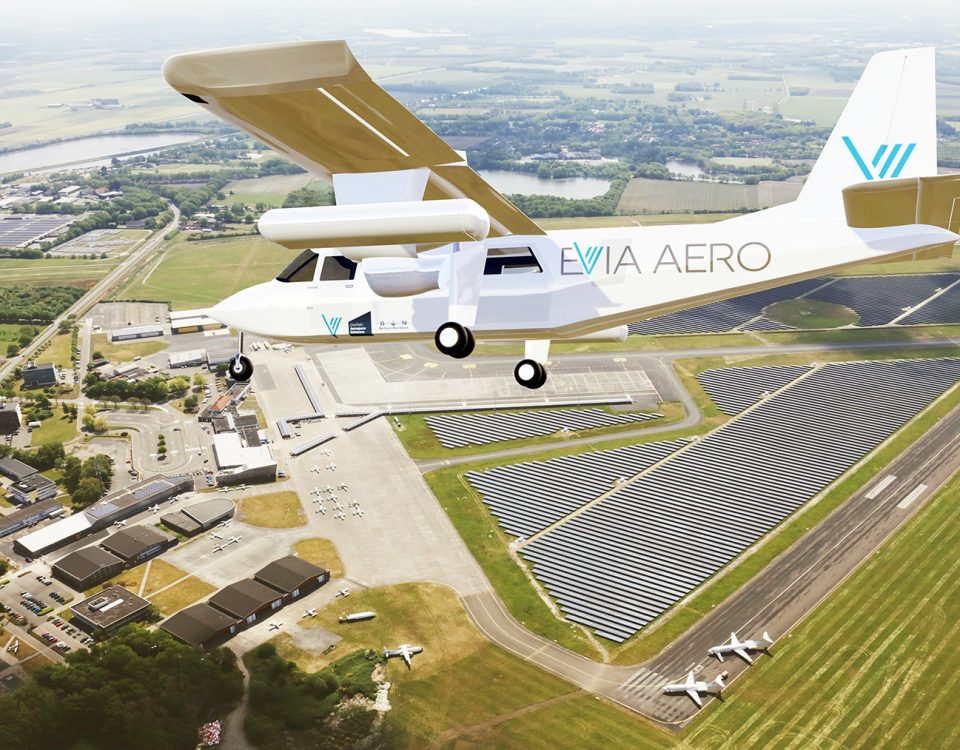
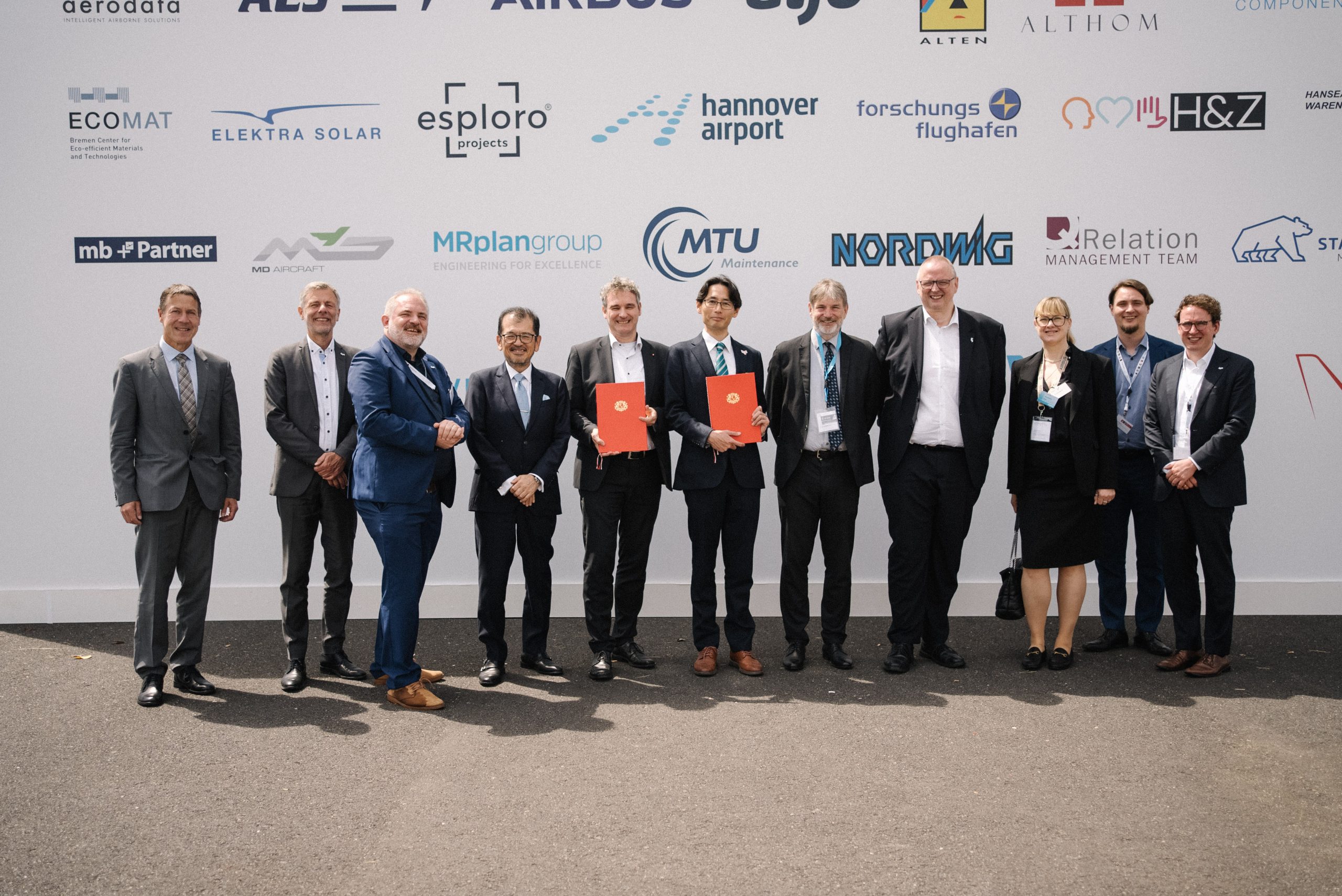
Contact:
28359 Bremen
Fon: +49 421 218 59680
E-Mail: nemeth@faserinstitut.de
Web: https://www.faserinstitut.de

